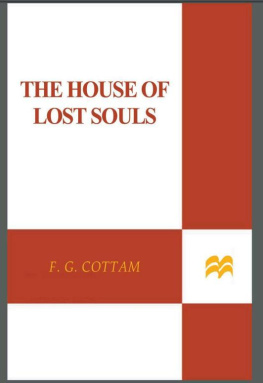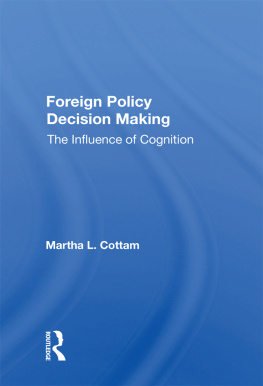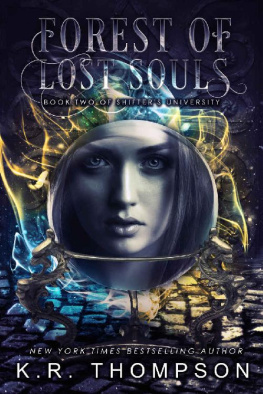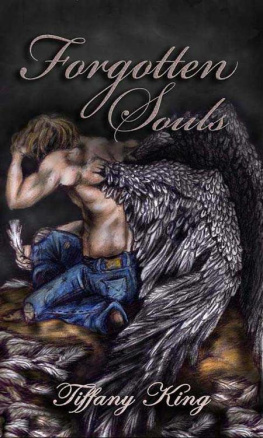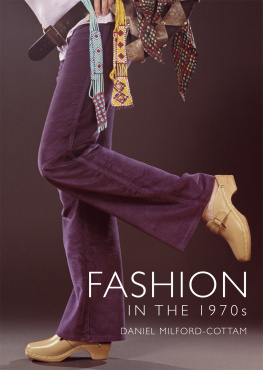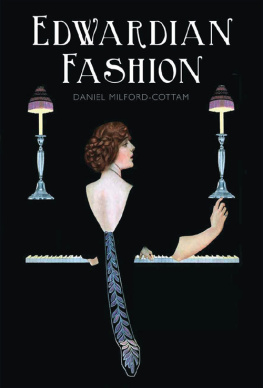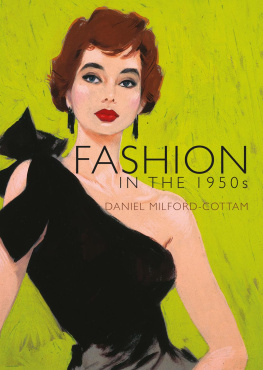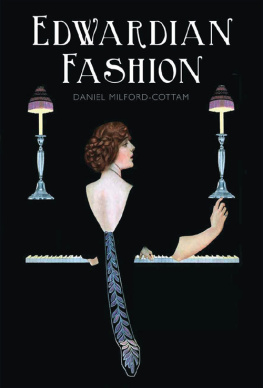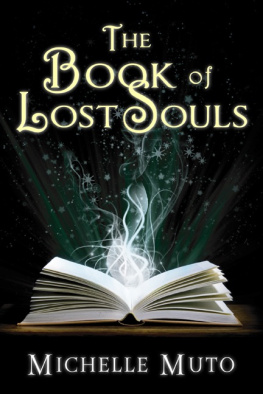F.G. Cottam - The House of Lost Souls
Here you can read online F.G. Cottam - The House of Lost Souls full text of the book (entire story) in english for free. Download pdf and epub, get meaning, cover and reviews about this ebook. year: 2009, publisher: Thomas Dunne Books, genre: Detective and thriller. Description of the work, (preface) as well as reviews are available. Best literature library LitArk.com created for fans of good reading and offers a wide selection of genres:
Romance novel
Science fiction
Adventure
Detective
Science
History
Home and family
Prose
Art
Politics
Computer
Non-fiction
Religion
Business
Children
Humor
Choose a favorite category and find really read worthwhile books. Enjoy immersion in the world of imagination, feel the emotions of the characters or learn something new for yourself, make an fascinating discovery.
- Book:The House of Lost Souls
- Author:
- Publisher:Thomas Dunne Books
- Genre:
- Year:2009
- Rating:3 / 5
- Favourites:Add to favourites
- Your mark:
- 60
- 1
- 2
- 3
- 4
- 5
The House of Lost Souls: summary, description and annotation
We offer to read an annotation, description, summary or preface (depends on what the author of the book "The House of Lost Souls" wrote himself). If you haven't found the necessary information about the book — write in the comments, we will try to find it.
The House of Lost Souls — read online for free the complete book (whole text) full work
Below is the text of the book, divided by pages. System saving the place of the last page read, allows you to conveniently read the book "The House of Lost Souls" online for free, without having to search again every time where you left off. Put a bookmark, and you can go to the page where you finished reading at any time.
Font size:
Interval:
Bookmark:

For my girls and for my boy, with love and pride.
Hull, October 1995
Nick Mason thought it ironic that he had always been so skilled at the covert aspect of the craft. Not so much skilled, really, as talented. He had a natural aptitude, an instinct for concealment. He watched his sister, pale at the graveside, from his hide a hundred feet away and it never even occurred to him that he might be discovered and compromised there. He knew how good he was at doing this. The proof lay in the fact that hed done it so often and was still alive.
It was ironic because he had never thought to employ these skills in carrying out surveillance on his own flesh and blood. But there it was. There he was. Here he was, spying on his little sister. His instinct told him there was every reason for doing so. He was doing it for her own good. And ironic or not, it was bloody convenient to possess the sly and patient cunning necessary to do it so successfully.
Hed gained the expertise in the 1980s in Northern Ireland. They loved a burial, the Paddies did. They loved a martyr properly honoured and, to Masons mind, were melancholy by nature, always hankering after a proper excuse to mourn. All the major players attended the big ones. And you learned a lot from the body language, watching them pay their respects to one another. You watched them greet one another and offer their condolences and you learned about their hierarchy. And so hed seen a lot of IRA heroes go to their final resting places, hidden in hides just like this one, sometimes feet away from the boyos posted as sentries, sometimes close enough to smell the breath on them from the steadiers theyd sunk in the pub on the way to the church.
He had to admit that this particular funeral was different from any of those, though. There was his sister, for a start, a pale, broken little presence in her black coat, with her clasped hands and the grief running in raw streams of redness down her face. Shed wanted to come on her own. Hed had to respect her wish to do so. It was why he was smeared in cam cream and wearing enough webbing to conceal a sniper in a combat zone. It was why he was dressed in jungle fatigues and had remained entirely still for two hours now in a narrow depression behind a thick cluster of twigs and thorn bushes adorned by an orange and russet litter of October leaves.
It wasnt just his sister that made it different, though. Watching the funeral procession walking to the graveside had been for Mason like watching a film with several of the frames missing. The light was odd and there was a jumpy quality to the way the mourners moved that made it hard to keep track of what was going on. Funerals usually had their own morbid choreography. Even when they buried one of the boyos in Belfast, the event had always possessed the same slow, deliberate decorum.
Here, one of the pallbearers had staggered from under the burden of the coffin and vomited with his head twisted away from the procession and his hands on his knees as soon as they exited the church. The other bearers had looked as sallow and nauseous as their colleague had, lurching and struggling on. The parents had not appeared to notice. Mason, mindful of the manner in which the girl had taken her life, tried not to look at the parents. But the priest followed the coffin like a man striding towards his own death, stiff-legged and sweating, gasping out the liturgy in little gulps of breath.
There was something not right about the sound of the ceremony. The church bell was a muffled, sporadic clang, dim-seeming as though travelling an impossible distance before being heard. If he really concentrated, he could just make out organ music, emphysemic from under the church rafters. But odd melodies kept drifting over it, reminding him of the piano rags and vapid crooning his old grandfather had liked to listen to.
The light was odd. Twice, the jump-cut procession of clergy and mourners and undertakers seemed to fade to black and white in their progress and when this effect occurred, it seemed to Mason that he was watching men in top hats and starched collars carry a black casket on a sombre march to oblivion through a throng of mourners massed in broadcloth and gabardine.
He rubbed his eyes. There was nothing wrong, Mason knew, with his eyesight. When he looked again, the procession was normal. And the dead girl on her final journey had reached the edge of her grave. The weather was strange. There was a fitful wind that swirled fallen leaves in cones and eddies like kaleidoscopic little whirlpools on the grass between headstones. This wind was unseasonably warm, as well as capricious. It carried a light scent, too, Mason thought, subtle but rank. Oddest of all, though, were the girls. There were three girls mourning their dead friend. Strictly speaking, there were two girls and a woman, because the American student was a few years older than Masons sister and the student from Merseyside. But there should have been three figures recognisable as students in their youth and togetherness and grief, shouldnt there? Except that Mason kept counting four.
He knew about pattern recognition. It was one of the most useful of the disciplines the army psychologists had drilled into the men operating in the field. Nature was random. Organised human behaviour wasnt. The IRA liked people to think that their cold assassinations were spontaneous acts of valour, but everyone knew they were rehearsed until perfected. Pattern recognition could enable you to spot the nondescript car you saw too often in your rear-view mirror, or the bland face that passed yours too frequently on the street. It could help you to come out the winner against a fruit machine, or complete a crossword puzzle miserly with its clues. It could also, on occasion, save your life.
Masons training insisted that the pattern at the graveside was wrong, that it was somehow out of kilter. But if he tried to concentrate on the mourners he seemed to lose some of the detail in heat ripple, which was ridiculous, because it was a damp day in late October. There was no heat ripple. There were bereaved family members as stiff-limbed as the walking dead, and there was a fearful-looking priest and burial professionals sallow with some kind of collective sickness. And there was a mourner too many among the girls. He risked moving a hand to wipe his eyes, which were gritty now with sweat and leaf fragments blown into his face by the wind. And he began to feel the ground beat underneath him like impatient hands, cold and flapping.
He had never worried overmuch about death. He had killed three men in Ireland and two in Central America and never given any of them another living thought. Colombia had been a contact, a legitimate firefight, ambushed by foot soldiers from the Medellin cartel when the regiment had been helping out the Yanks with their marching-powder problem. The training had kicked in and hed scored two hits. It had been kill or be killed. Northern Ireland had been what it was, the Province and its long and dirty, often clandestine war. Hed had nothing to be remorseful about. Theyd even given him a medal. None of it had ever troubled his conscience. And he could honestly say that hed never been frightened.
But Mason was frightened now. And he was spooked. He looked up and through dim ripples of light, thought he saw a team of snorting, black-plumed horses crossing the cemetery pulling a glass coffin mounted on a carriage hearse. He blinked and the apparition was gone, but the ground still seemed to throb with horrible life underneath him and he knew that it was his own pulse, thumping, his whole body cold and urgent now with foreboding.
Font size:
Interval:
Bookmark:
Similar books «The House of Lost Souls»
Look at similar books to The House of Lost Souls. We have selected literature similar in name and meaning in the hope of providing readers with more options to find new, interesting, not yet read works.
Discussion, reviews of the book The House of Lost Souls and just readers' own opinions. Leave your comments, write what you think about the work, its meaning or the main characters. Specify what exactly you liked and what you didn't like, and why you think so.

